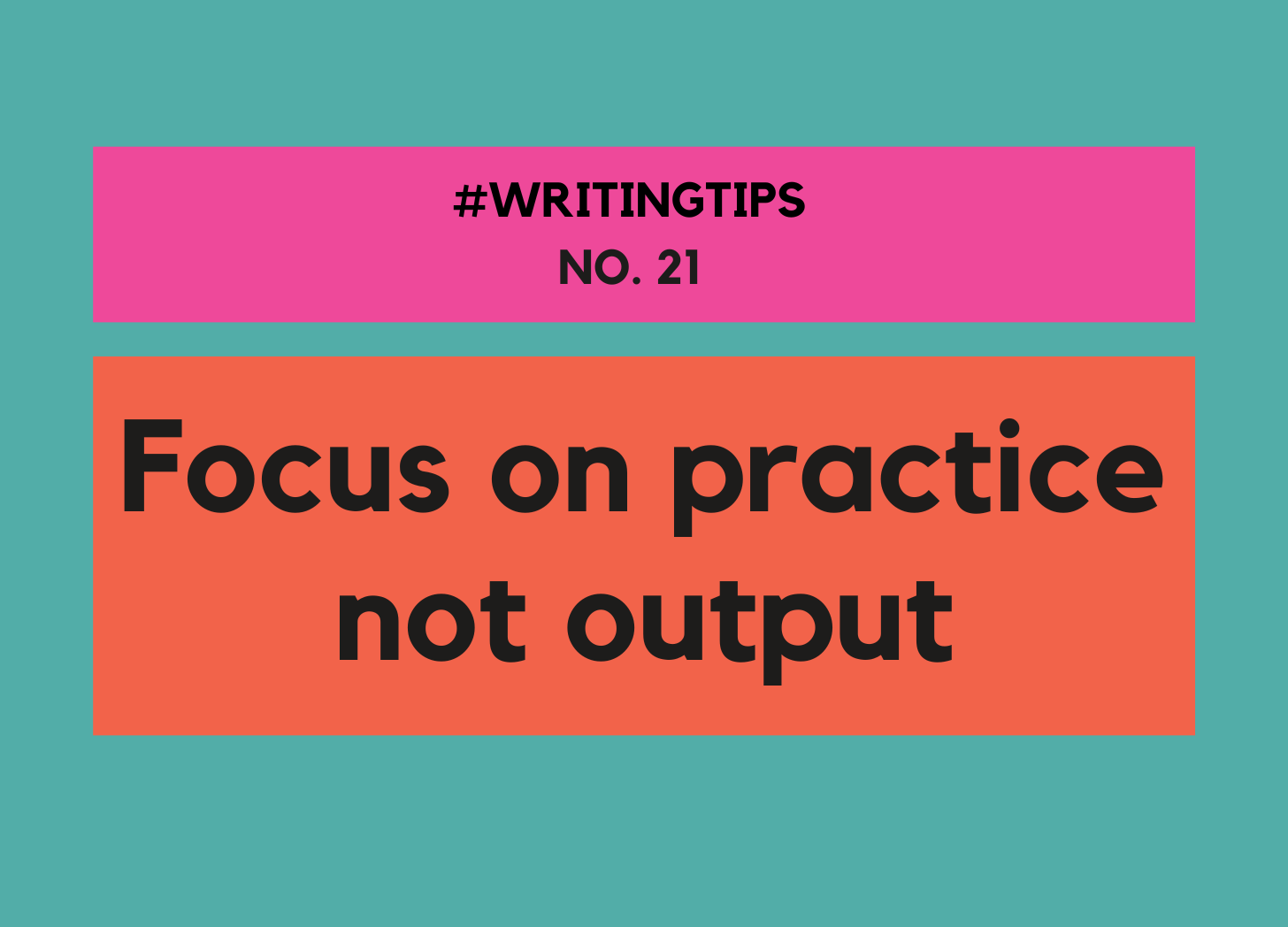Tip 21: Focus on practice not output
The ‘best’ way to set a goal might not work for you & why that’s OK. Forget best practice and focus on practice instead.
Hello!
It’s Monday which means it’s writing tip time.
Let’s talk goals. January with all its ‘fresh start’ energy is our busy time as we run lots of New Year goal-setting workshops. It makes sense, if you want to get writing the first step is to make that dream concrete.
The research backs this up. Setting a specific yet challenging goal, being clear on what you want to do, by when, is part of the fabric of our life - from quarterly workplace targets to healthy living intentions. The theory goes that SMART goals lead to output.
However, it doesn’t always work like that. Have you:
ever set a goal then immediately gone off your project?
stretched yourself to meet an output but been too ambitious?
lost all motivation after a few days of falling short of your target?
If so, you are not alone!
Best practice is not the only way
The research on goal setting is like everything else in life. It describes a bell curve of experience with a cluster around the average in the middle, creating a norm. The top of the bell curve might be ‘best practice’, the optimal way to set a goal that gets results, but many of us are distributed elsewhere, perhaps at the extreme ends. Best does not mean it’s the only way to set a goal.
Practice goals
When we run workshops we’ll tell people the research-backed way to set goals. It’s helpful but it doesn’t really fire people up.
What makes people sit up and pay attention is talking about practice goals; the experience of writing, focussing on how we feel and what we do when we show up to write. Practice goals help you learn your skill and improve your process. For example:
I want to reduce the amount I procrastinate
I want to increase the length of my writing sessions
I want to get better at managing my inner critic
Practice goals can also be tangible, such a having three writing sessions a week - but they don’t nail down an output. They’re about showing up to write and being curious about that experience. Noticing what works and what doesn’t and finding ways to deal with those.
If output goals work for you, that’s great - keep using them. If not, perhaps look at your practice instead.
We’d love to hear what you think - put a comment below. Tell us if output helps you get the words down or hinders it? Are you up for SMART or do you prefer other approaches. If you found this helpful, let us know by clicking the heart.
Forget ‘best’ practice and find YOUR practice.
Bec ❤️
Available from Amazon and all good bookshops.







